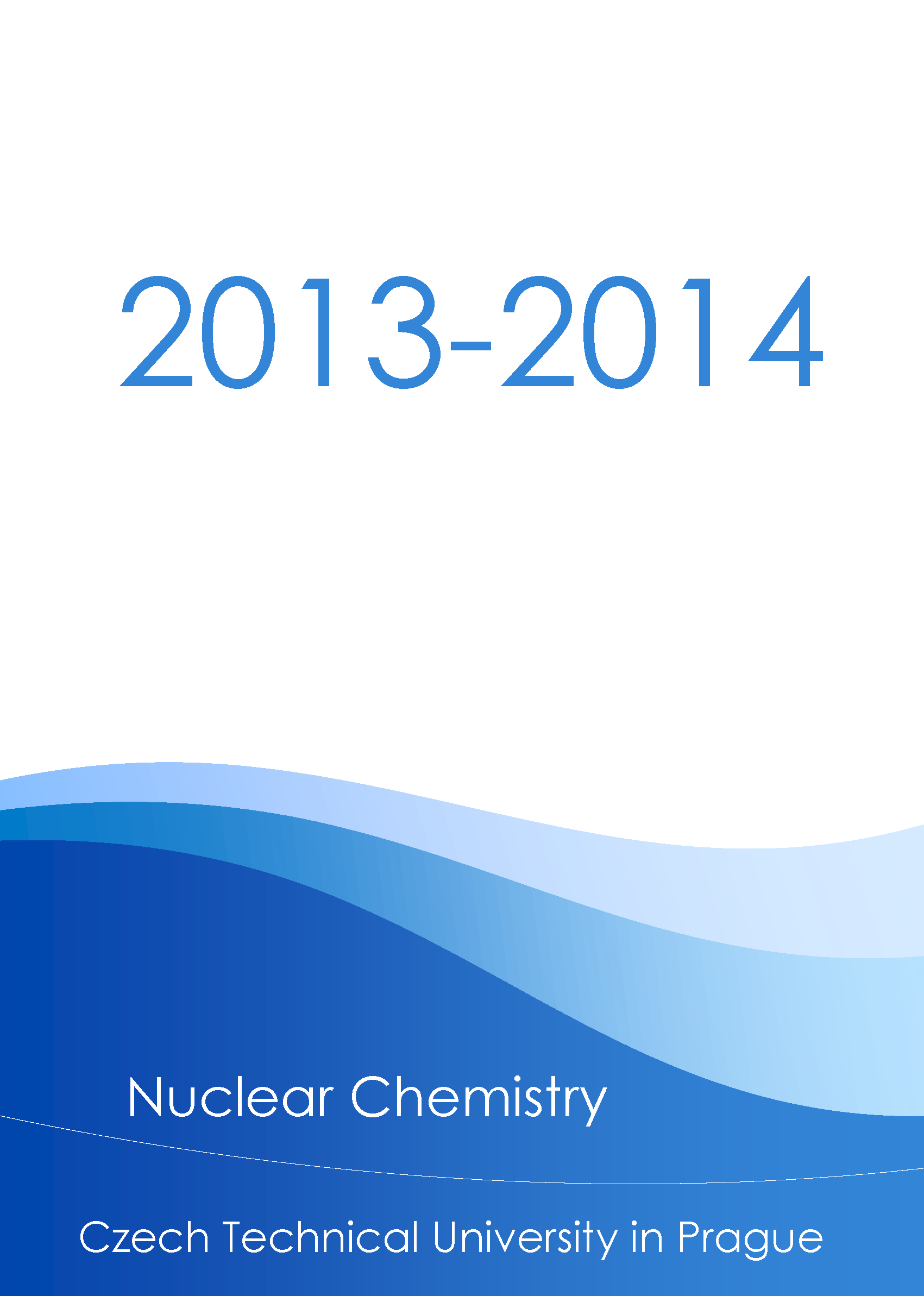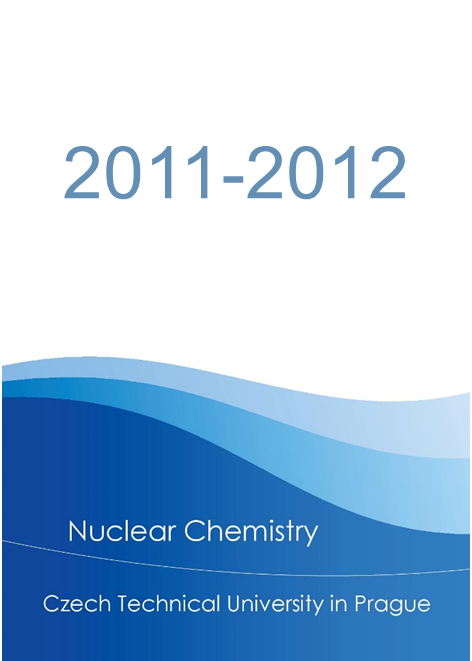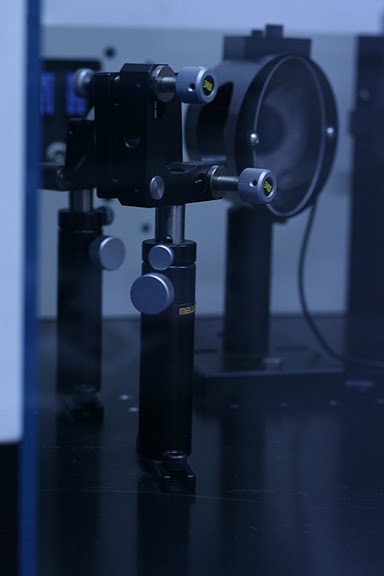Graduates
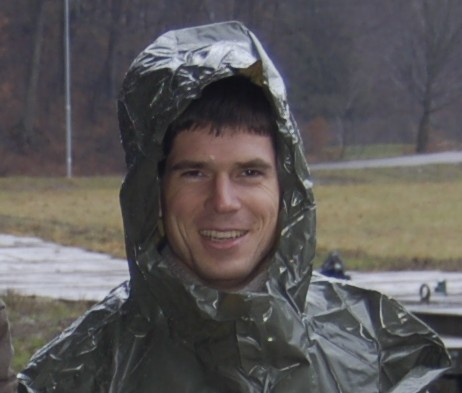
Profile: Ing. Ota Fišera, Ph.D.
I work in the VOP-026 Šternberk, sp, department at VTÚO Brno. The main focus of our business is to meet the interests of the state and wider social needs in supplying and manufacturing services for defence and national security and contribute to the Czech commitments associated with membership of the EU and NATO. Specifically, I work at the Department of Special Dosimetry, which deals with radiation protection. We are involved here in the development of a number of things, such as equipment for the 31st radiation, chemical and biological defence brigade in Liberec. Currently we do in-situ gama spectrometry, as an extension of the monitoring equipment options introduced in the ACR. For the purpose of this project modelling, using Monte Carlo simulation for different measurement geometries and types of detectors, is also carried out. Projects in the field of radiochemistry are also in discussion. (Information gathered 12/2010)
Profile: Ing. Petr Kovařík
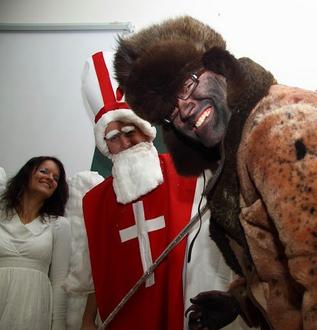
Already in the 4th year of study working in the Rez Nuclear Research Institute (NRI) ltd, where I focus on the the research and development aspects of radioactive waste disposal. At the beginning I was in charge of administering smaller projects, communication with customers, promoting the department at conferences and I was involved in the creation of various studies in the field of radioactive waste management for both domestic and foreign customers.
Later I took part in the doctoral program and also started to research technological radioactive waste disposal problems in dissolving salt oxidation (DSO). As part of my doctoral program, I received a scholarship from the International Atomic Energy Agency for a 3 month stay in the U.S. research institute Hazen Research Inc. (Information gathered 12/2010)
Profil: Ing. Martin Přeček
Since 2008, studying in the U.S., Oregon State University, in Dr. Alena Paulen’s radiochemistry group. Here I deal with the study of redox reactions taking place during the neptunium aque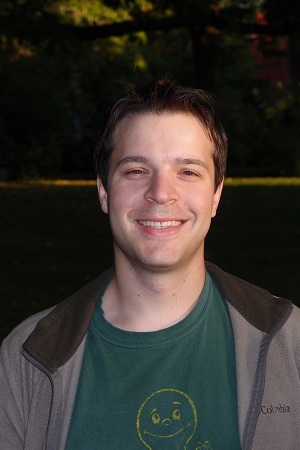 ous reprocessing method UREX. During the last three years I have mainly worked on the characterization of reaction kinetics of Np (V) and Np (VI) with different redox agents (such as nitrous acid, acetohydroxamic acid, hydrogen peroxide, vanadium quinquivalent) and reactions between the agents themselves. My main method of analysis is high UV-VIS-NIR spectrophotometry.
ous reprocessing method UREX. During the last three years I have mainly worked on the characterization of reaction kinetics of Np (V) and Np (VI) with different redox agents (such as nitrous acid, acetohydroxamic acid, hydrogen peroxide, vanadium quinquivalent) and reactions between the agents themselves. My main method of analysis is high UV-VIS-NIR spectrophotometry.
The student doctoral program is in the U.S. and is well paid, so that I have no problem living here quite well on the money obtained, giving me the freedom to travel around. The standard length of study in the Ph.D. the program is longer - about 5 years, but that's because it usually starts from Bachelor level. Depending on the agreement with the supervisor and depending on how hard you work, it is possible to study for a shorter period of time. (Information gathered in 12/2010)
Profil: Ing. Jan Pejchal, PhD
Science and technology have interested me since I was at school. It was not long before this interest extended into chemistry. This happened after I borrowed a book called "Two hundred chemical experiments." from the town library . I’m sure you can im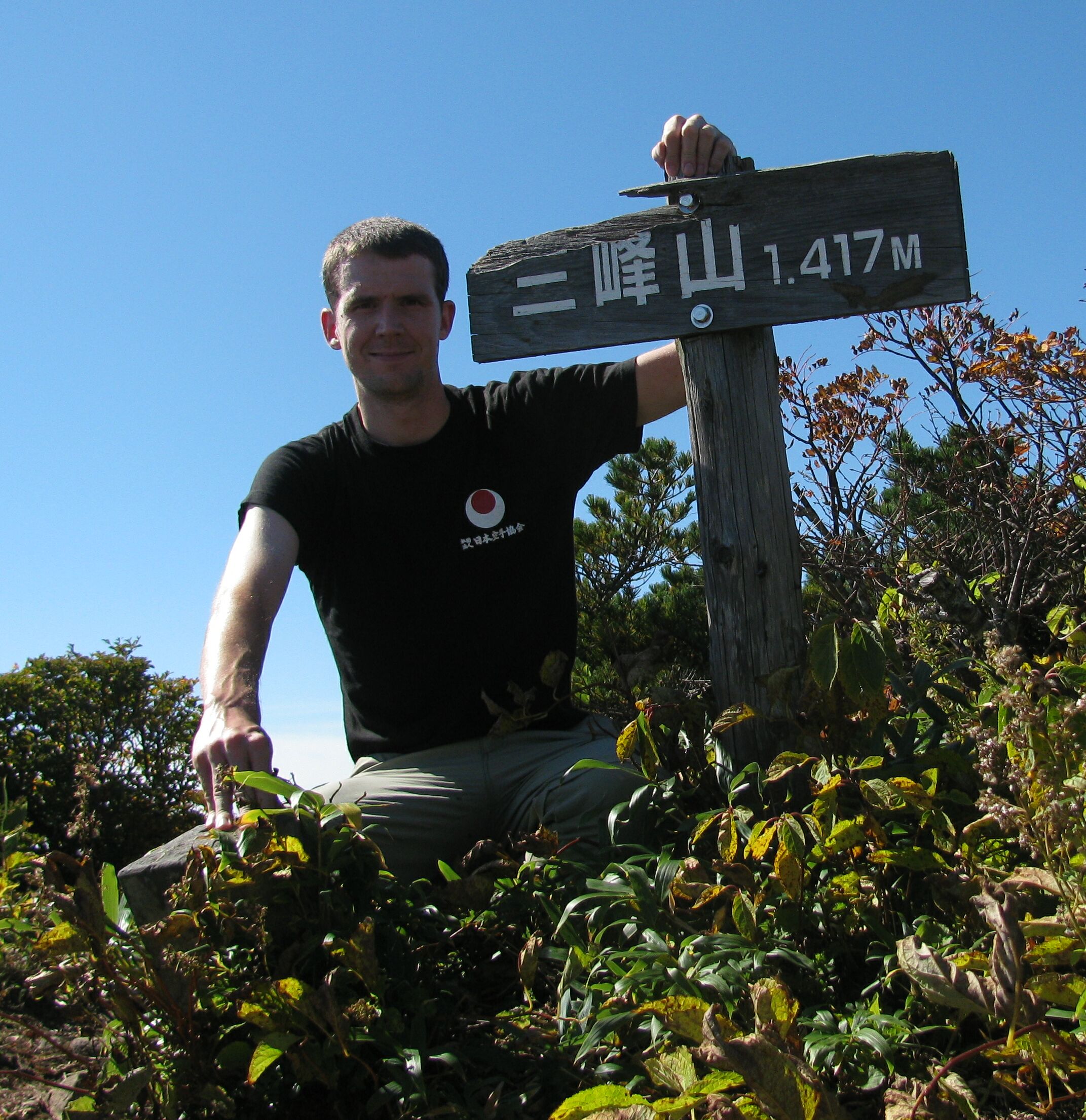 agine how I spent my free time back then. I'm also interested in nuclear physics, and related topics such as radioactivity, atomic nuclei, nuclear energy, etc. The Dukovany nuclear power plant, which is close to our town, also seems to have influenced these interests. When I was deciding which college to go, I waron emission tomography (PET) or mammograms, which are successfully used for the detection and imaging of cancerous tumours. Another important application is the inspection of luggage and transported goods, for example at airports, where systems of scintillation detectors, used in conjunction with X-rays, allows the contents of people’s luggage to be viewed. Given the current international situation the development of scintillation detectors, especially for the last application, is of particular importance.
agine how I spent my free time back then. I'm also interested in nuclear physics, and related topics such as radioactivity, atomic nuclei, nuclear energy, etc. The Dukovany nuclear power plant, which is close to our town, also seems to have influenced these interests. When I was deciding which college to go, I waron emission tomography (PET) or mammograms, which are successfully used for the detection and imaging of cancerous tumours. Another important application is the inspection of luggage and transported goods, for example at airports, where systems of scintillation detectors, used in conjunction with X-rays, allows the contents of people’s luggage to be viewed. Given the current international situation the development of scintillation detectors, especially for the last application, is of particular importance.
After the successful completion of my doctoral studies, s almost sure it would be the Prague Institute of Chemical Technology. Instead, before taking my A-levels in 1998, I visited the undergraduates fair at Gaudeamus in Brno, purely out of curiosity. There I saw a very interesting and entertaining presentation given by FNSPE CTU. Once I realized that nuclear chemistry could be studied there, the choice was clear.
The difficulty of the school rather surprised me at first. I even contemplated the rather cowardly action of quitting my studies and leaving, but I knew that this was the field which, in the future, I would like to earn money in, so I had no choice but to put my nose to the grindstone. The friendly atmosphere and individual access to faculty teachers served to help me.
In the fourth year I was part of the research mission which began a formal study of luminescence and the radiation resistance of scintillation materials. This took place in collaboration with the Institute of Physics (IOP), and the Academy of Sciences in Prague. I continued this research in my thesis and subsequent doctoral studies.
Scintillation materials convert the energy of ionizing radiation to visible or ultraviolet light, which is then detected by a sensor such as a photomultiplier or photodiode. These materials are therefore used in the detection of ionizing radiation. First, in nuclear physics experiments at accelerators, and also in medical imaging techniques such as computed tomography (CT) used for non-invasive examination of the human body. Further, for example, positI joined the Institute of Physics AVCR as a researcher and then left to spend two years on a stipendiary with the JSPS (Japan Society for the Promotion of Science) in Japan. I worked at Tohoku University in Sendai engaged in the development and growth of crystals for new scintillation detectors. The Institute of Physics ASCR and the Institute for Materials Research at Tohoku University respectively are at present still continuing with these projects.
You can see that I was moving away from the completion of my research in nuclear chemistry somewhat .The advantage of studying at FNSPE lies in the fact that emphasis is placed on a wide range of practical and theoretical skills, which leads a very high standard of technical education. It is not difficult for those who move away from the studied orientation to subsequently succeed at complex interdisciplinary problems. Finally, I would like to wish good luck, success and increased determination to all prospective students. And most of all don’t give up.
Or, as the Japanese say:
諦めないで!頑張って下さい!(Information gathered in 2/2012)
Profil: Ing. Ondřej Lebeda, Ph.D.
vedoucí oddělení radiofarmak Ústavu jaderné fyziky AV ČR, v.v.i.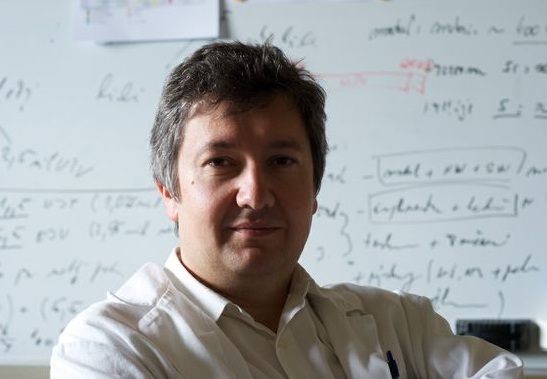
Obor jaderná chemie na FJFI ČVUT jsem absolvoval v letech 1991‒1996. Diplomovou práci na téma přípravy 211At pro účely nukleární medicíny jsem experimentálně zpracoval v Ústavu jaderné fyziky AV ČR pod vedením Ing. Miroslava Fišera, CSc. Pokračoval jsem doktorským studiem v letech 1996‒2002 rovněž na FJFI ČVUT se školicím pracovištěm ÚJF AV ČR, oddělení jaderné spektroskopie. Svoji disertaci jsem věnoval přípravě dvou cyklotronových radionuklidů, 81Rb a 211At, a jejich aplikacím v klinické praxi a ve výzkumu radiofarmak. Součástí studia byly i dlouhodobé stáže v oddělení Biomedical Radiation Sciences University v Uppsale, kde jsem se věnoval studiu značených sloučenin 211At. Během studia jsem přešel do nově zřízeného oddělení radiofarmak Ústavu jaderné fyziky AV ČR (1998) a po jeho ukončení pokračoval ve výzkumu značených sloučenin a zejména přípravě cyklotronových lékařských radionuklidů (61Cu, 64Cu, 76Br, 86Y, 124I, 123I, 230U, 68Ga, 99mTc aj.). V poslední době se věnuji v rámci mezinárodních i národních projektů zejména studiu excitačních funkcí jaderných reakcí těžkých nabitých částic, přípravě nekonvenčních PET radionuklidů a cyklotronové přípravě 99mTc jako alternativě reaktorového 99Mo. Od roku 2010 jsem členem mezinárodního projektu KATRIN (stanovení klidové hmotnosti neutrina), od roku 2011 pracuji jako expert ČR ve skupině 14 Radiofarmak Evropské lékopisné komise. Jsem členem Rady Ústavu jaderné fyziky AV ČR, v.v.i., Vědecké rady FJFI ČVUT a oborové rady doktorského studia organické chemie na PřF UK. Na FJFI ČVUT přednáším jako externista předměty Příprava radionuklidů a Radiofarmaka a vedl jsem dvě disertační práce. Jsem autorem a spoluatorem 33 publikací v mezinárodních impaktovaných časopisech, recenzuji pravidelně pro časopisy Applied Radiation and Isotopes a Nuclear Instruments and Methods in Physics Research B, příležitostně i pro jiné impaktované mezinárodní časopisy.
Studiem na FJFI jsem rozhodně získal dobrý základ pro svou současnou práci. Záběr předmětů byl poměrně široký v oborech od matematiky po chemii. Zpětně bych řekl, že obrovské bohatství teoretického aparátu, který se studentům nabízel, nebylo a ani dost dobře nemohlo být vyváženo jeho aplikacemi na živé úlohy z výzkumné praxe. Přestože je dnes situace v tomto směru lepší, vnímám stále jako největší úkol učitelů zapojit mladé a talentované studenty do vědecké práce ve věku, kdy se mohou věnovat oboru naplno, objevit radost z vazby teorie a experimentu, a ocenit tak více to, co studiem získávají. Samozřejmě, že nejde jen o úlohu katedry jaderné chemie, tohoto cíle lze dosáhnout jedině v součinnosti s ostatními pracovišti v oboru, a to nejen národními. Zahraniční stáže umožňují dnes získat neocenitelné zkušenosti prakticky kdekoliv na světě a měly by být standardní součástí života doktorandů. I tam studenti mohou docenit, co už studiem získali. Sám jsem ještě během magisterského studia absolvoval dvouměsíční stáž v GSI Darmstadt, která pro mne mnoho znamenala. Během studia jsem měl rovněž možnost setkat se s výjimečnými osobnostmi, nejen na katedře, ale napříč celou fakultou a také na jiných vysokých školách. Za všechny bych rád zmínil alespoň jediného: vynikajícího učitele a vzácného člověka, Prof. Ing. Zdeňka Janouta, CSc.
Jaderná chemie je obor, který má aplikační přesah do řady jiných oblastí a je tak poměrně univerzální. Vyžaduje už od počátku od člověka vnímavost pro příbuzné obory a je dobrým předpokladem interdisciplinární spolupráce. Příkladem je oblast, kde sám pracuji - radiofarmaka. Skutečně kvalitní výzkum v tomto oboru je podmíněn dobrou spoluprací odborníků z oblasti fyziky, chemie, biochemie, biologie a medicíny. Ta v evropském prostoru existuje na žádoucí úrovni dosud málokde, a tak zůstává stále otevřenou výzvou. Rozhodně pro jaderné chemiky. (informace k 5.6.2012)


